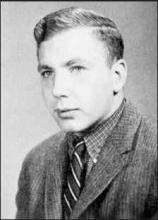 |
GEORGE LEAR (1936-1974)
Bob Thompson remembers George Lear as his best friend at Amherst and for several years afterward. “Our closest time was probably in Munich, where George wrote a book, “On the Nature of Art,” exploring the meaning of the word ‘art’ and the role of art in American life.” There, Bob introduced George to his future wife, Trude Freund, “an extraordinary German woman who raised their two children and has been devoted to George.” After returning to the United States, George and his family settled in Lexington, Va. He continued writing, this time in a small monthly journal named POLIS, addressing U.S. urban problems.
Trude Lear Smith remembers her husband as “a thinker.” He spent his waking hours thinking and writing, she said, “and I feel that I may well have benefited the most from his intellectual efforts and achievements. After he painstakingly examined the nature of art, chronicling its uses and abuses in the medium of advertisement, he turned his thoughts to the reasons for war and peace and the role of economics. His last quest sprung from an urgent and sincere desire to somehow comprehend God. His ideas were inspiring as I was raising our children, the joy of my life. They share with him a striving for learning and understanding and excel in applying their knowledge and experience to the benefit of the communities in which they live, something George had hoped to do in his lifetime."
In 1967 George resumed work on his doctoral thesis on Wittgenstein and linguistic analysis at Cornell, completing it in 1970. Starting in 1971 he taught philosophy at North Carolina State, where his interests had shifted to Eastern philosophy and mysticism. Bob Thompson remembers, “It was during this period that George first showed signs of depression, becoming more serious as time went on. George was well read about this illness and keen in his arguments, diffusing efforts by spouse, friends and professionals to communicate with him.
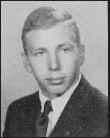
“None of this produced change, and was mostly unsuccessful. As time passed, he tended to pull away, wearying of the same repeated voices and messages. Capturing memories of George has been difficult for me. Over the years I have tended to keep too much of this locked in the cupboard– out of reach but not safely out of reach.”
After George’s death in 1974, Trude spent the next 18 years raising their children as a single mother, earning a living as a college instructor, anxious to preserve the best memories of George by making real some of his wishes for them. “Maj. Wm. M. Smith gets the credit for my remarrying in 1991,” she says. “He wanted a spouse with children.” She resides in Winnetka, Ill., and keeps busy with family, church activities and the arts.
George's daughter, Nina F. Lear Markham (PhD, Immunology, Utah) and her husband Stephen Markham (DDS) are raising their seven children in Las Cruces, N.M. and work as a team, managing his practice. George's oldest son, George Andrew Lear III (MBA, Michigan) lives in the Seattle, Wash. area. He is married to Jennifer (MSc,
Michigan) and has three energetic sons and a 1-year-old daughter. Andrew has taken after his great grandfather, Wilson H. Lear, and his grandfather George Andrew Lear (Sr.) by working as a finance manager in the forest product industry for Weyerhaeuser Co. George’s second son by a second marriage, Wilson Lear (MBA, Stanford), is not married and travels for his own business, establishing international call centers.
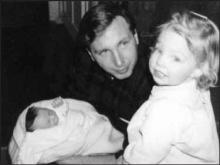
George remains warmly remembered by friends and family for his penetrating intellect, charismatic teaching personality and great sense of humor. Bob Thompson asks why he was so appealing. “I think his intensity was a large part of it. His sense of humor was nearly always on the table. He could make us laugh when we thought there was nothing left to laugh about. Some of his favorite jokes were about philosophers and the wise or silly things they were reported to have said. Yet these were also the thoughts and feelings of persons who had spent their lives contemplating the purposes of human existence. This was a quest George understood well because it resembled his own.”
George Andrew Lear Jr. took his own life April 4, 1974.
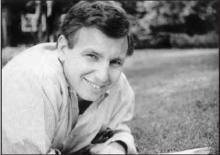 | 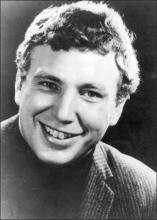 |